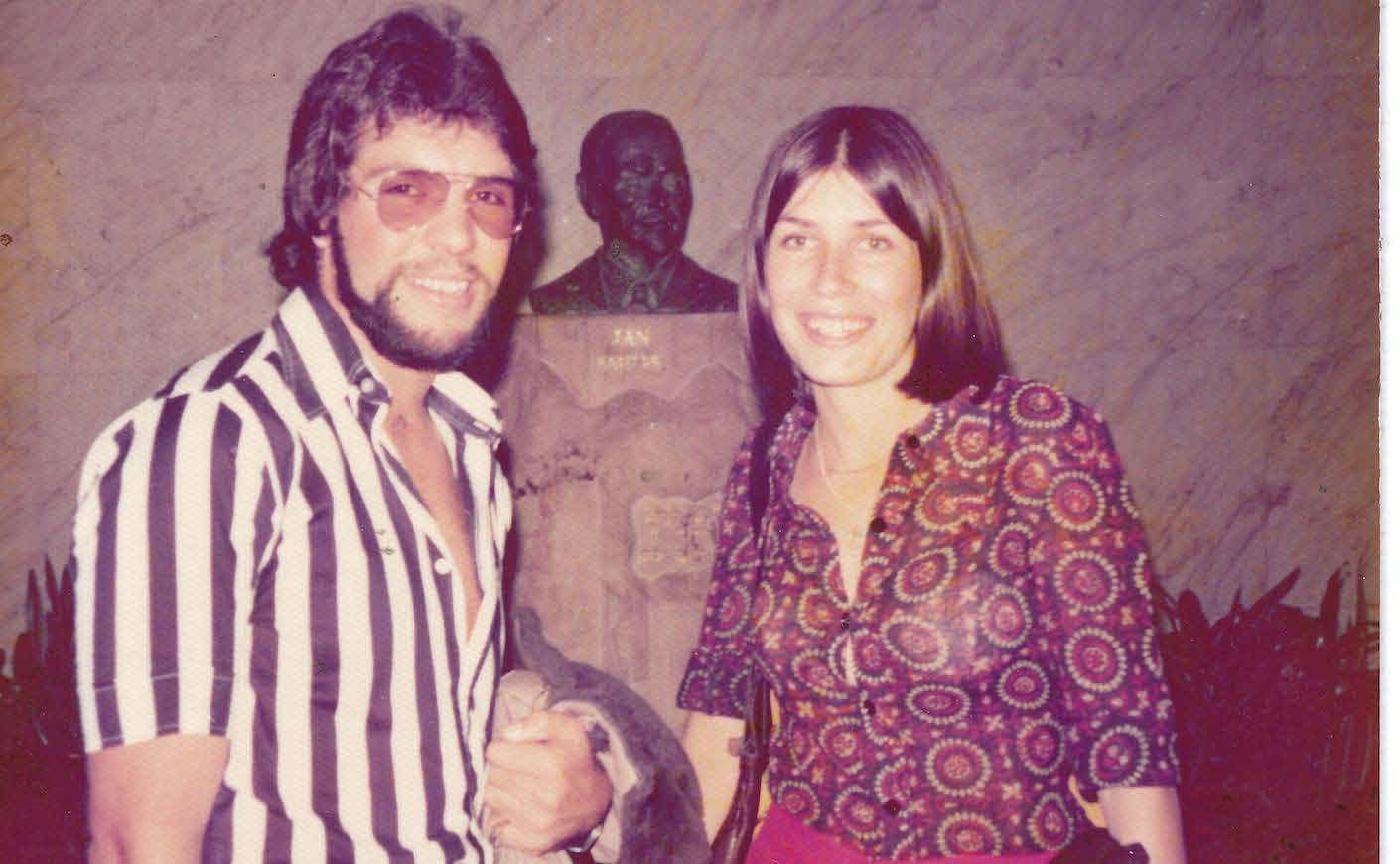This interview was conducted in April, 2022. Ian passed away on June 5th, 2022, surrounded by his family.
The first thing you’ll notice when you meet Ian Abramowitz is that he’s got boundless energy…, and he adores his wife Janice — he brings her up every chance he gets. “I was 21 when I saw her from across a parking lot, and I was instantly in love,” he remembers. “We are Jewish, and in our religion, there is an idea called Bashert, which means that two souls are predestined to meet. I truly believe that. She is the best thing that has ever happened to me.”
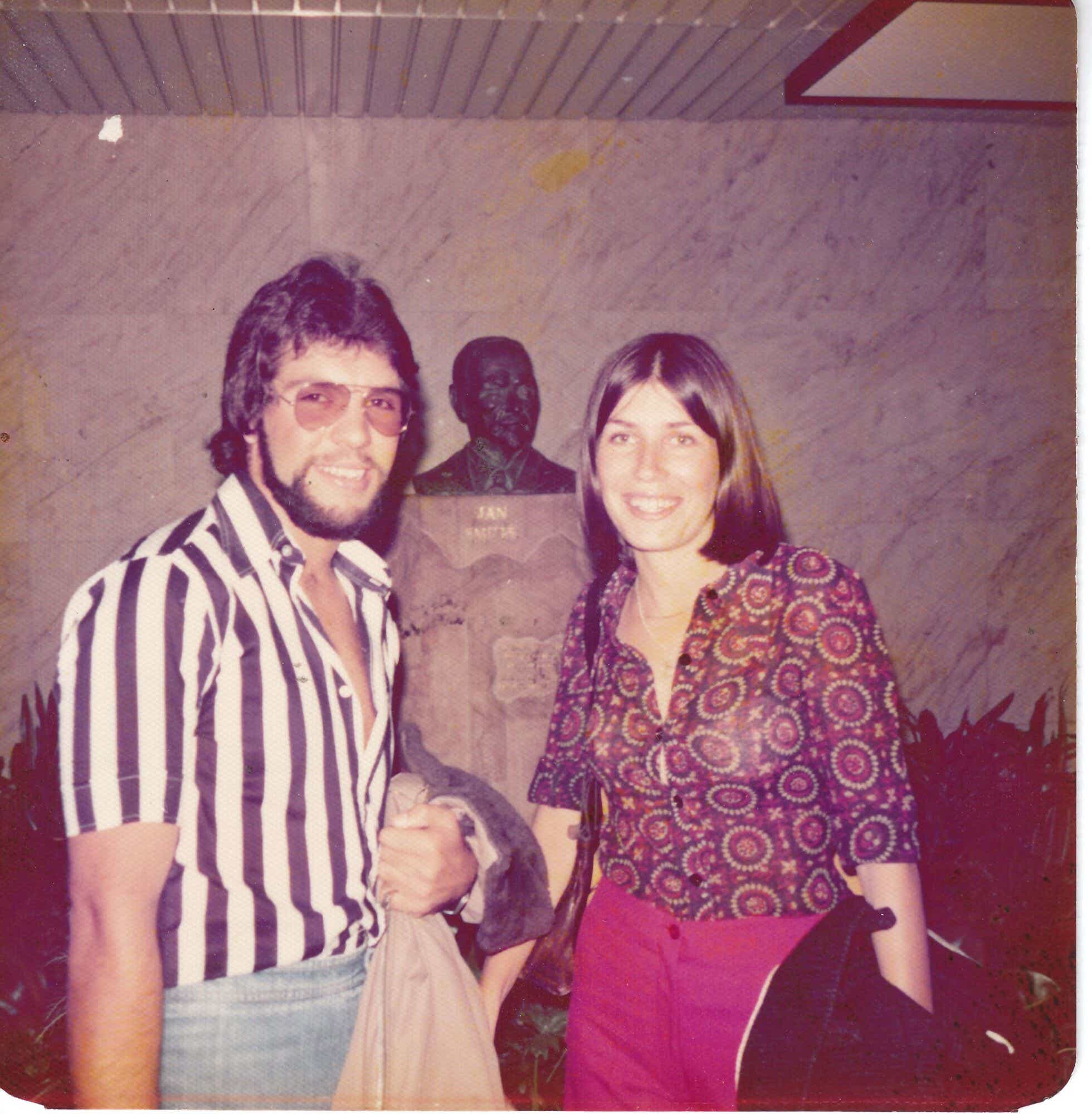
A year later, they were married, and are now coming up on their 45th wedding anniversary. Abramowitz lights up when speaking about the couple’s three adult children and their growing gaggle of grandchildren. He loves to cycle, travel, and take long walks with Janice. He is a person who seems to have lived a charmed life. You would never imagine that this gregarious, joyful man has endured enough tragedy for ten lifetimes.
A South African native, Abramowitz fled the country in 1987 with Janice and their young children amidst the horrors of Apartheid. “It was like a warzone, and there was so much injustice. We didn’t want to bring our kids up under that system,” he explains. The family was able to relocate to Canada.
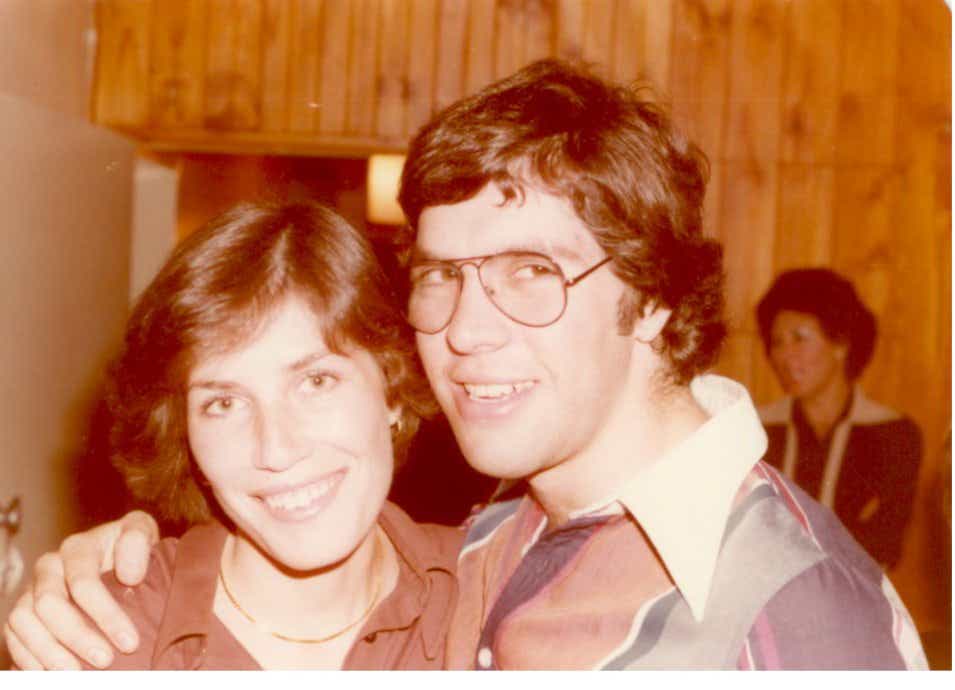
In 1996 Janice was diagnosed with breast cancer, which prompted her to have her first mastectomy. Years later, the cancer returned, resulting in a second mastectomy. Soon after her first bout with cancer, the couple lost their niece and nephew in a fatal car accident. Then in 2005, Janice developed thyroid cancer and had to have her thyroid removed.
At the height of the pandemic in 2020, just as the company Abramowitz worked for was dealing with a major lawsuit, Janice underwent emergency open-heart surgery to repair multiple problems with her heart. During the seven-hour procedure, Janice suffered a minor stroke, which left her unable to work and in need of major rehabilitation.
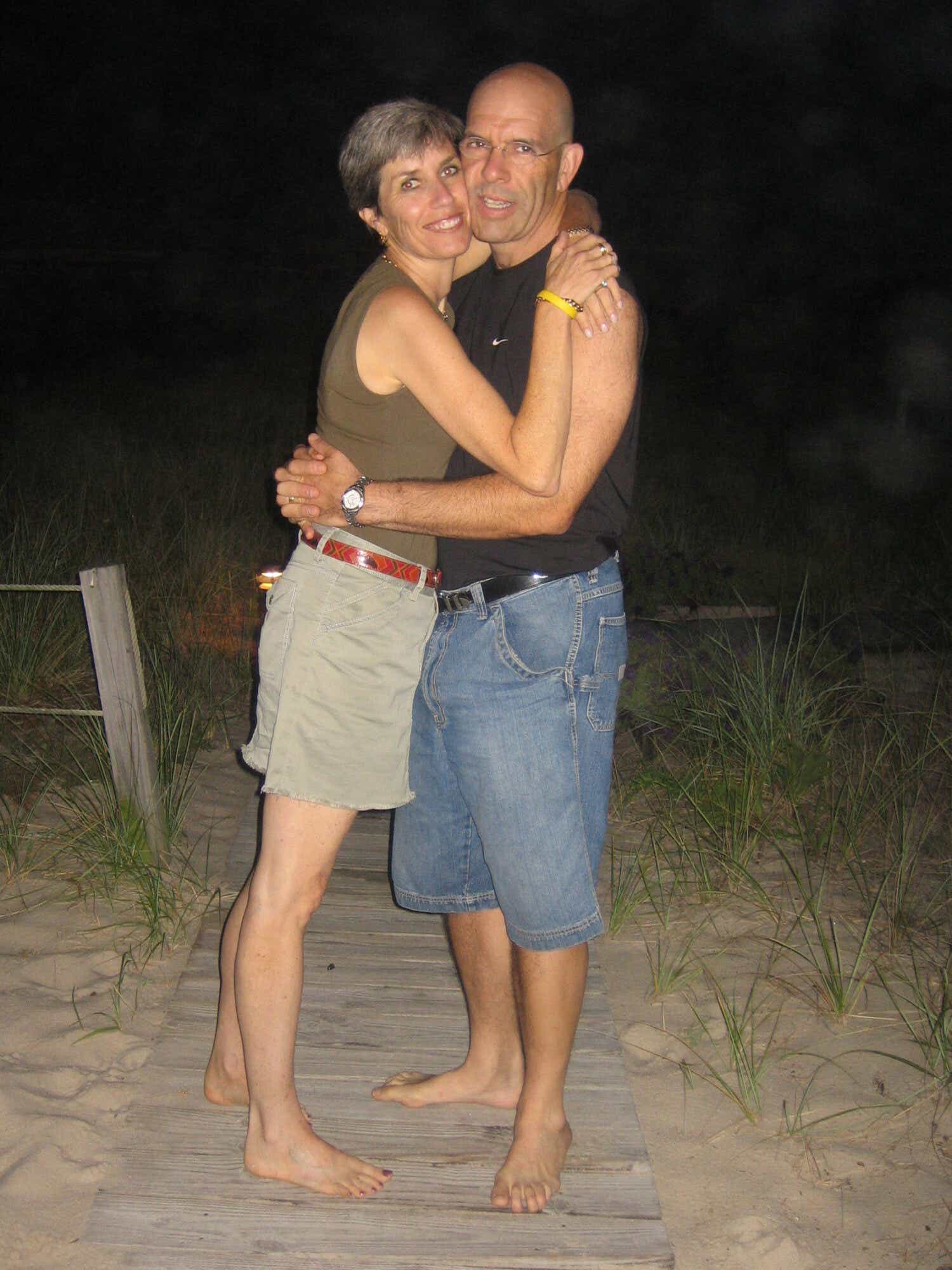
After spending a week in the ICU and then another in the cardiac ward, Janice returned home where she and Abramowitz were forced to isolate during the pandemic. “I was literally doing everything for her all by myself,” Abramowitz explains. As he cared for his wife, Abramowitz began having severe stomach pain. “I thought it was acid reflux because of all the stress,” says Abramowitz. He went to the doctor, who ordered an endoscopy. “I thought the worst thing they were going to tell me was that I had a hernia. But when I woke up, the doctor told me, ‘You have a tumor in your stomach and your esophagus, and the cancer has metastasized into your liver and your lymphatic system. It is inoperable and incurable. It’s likely you’ve got a year to live.’”
After receiving this diagnosis, Abramowitz’s first thought was, “I’m very happy with the life that I’ve lived, and I leave my fate in God’s hands. Technically we’re all terminal, right? The only difference now between me and anyone else is that I have an idea of where I am on the mortality scale. I’m not frightened to die.”
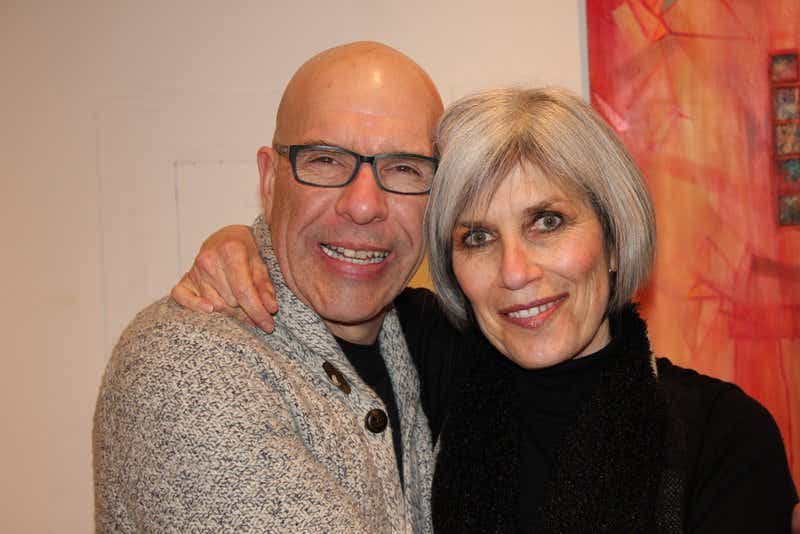
At the time, his biggest fear was how his family would manage after he was gone. “It was hard for me to come to terms with how my death would impact my family,” he says. “I always ran the finances, and I didn’t want Janice to be lost without me, so I automated all of our bill payments.” Abramowitz spent six months making a “bible” of everything Janice might need to know when he was gone, like how to fix things in the house and where to find all of their passwords. “I think that was my way of coping,” he says.
Unlike Abramowitz’s instinct for practicality, Janice’s initial reaction was panic. “It was traumatic,” she says. “I was just learning to walk again after my stroke. The first time I drove a car was to take him to the hospital. So the focus that was on me, on my healing, was just gone. To go from being this sick patient to caring for a husband with terminal cancer was terrifying.” Once she got over the initial shock, Janice decided that she would not take her husband’s diagnosis lying down. “I wouldn’t let myself fall apart completely,” she says. “I express myself through art. After my surgery, I found a lot of comfort in painting and drawing my feelings. When Abramowitz was diagnosed, that was the end of my art,” she explains. But then, she stepped into action. “I decided, I’m going to fix this, even if I can’t fix this. I spent days and nights researching and reading. I decided I was going to find the best treatment possible.”

The search for the best treatment was not easy. “Everyone was giving me different advice,” says Janice. “Some people were telling us we needed to go to Israel for an experimental treatment there. Others said we needed to move to the States for a year if he was going to have any shot at beating this.” It was around this time that Janice was connected to an employee at Exact Sciences, who told her about a molecular test that might help determine a course of treatment. “I’d never heard of molecular profiling,” says Janice, “but I thought, what have we got to lose? It’s worth a shot.”
The test, known as the Oncotype MAP Pan-Cancer Tissue test, would determine whether Abramowitz’s tumor had a biomarker that would indicate whether his cancer might respond to immunotherapy treatment. The likelihood of this was low, but Abramowitz didn’t get his hopes up. “I knew they were looking for a proverbial needle in a haystack, and that my chances were slim. So I tried to focus on the good. I’ve had a really good life. I have been so blessed to have Janice and my children. I’m proud of the contributions I’ve made to society. I am happy with the life I’ve lived.”
Janice’s feelings were a bit more complicated. “I think it’s very healthy for him to have the attitude that he has,” she explains. “If he was depressed, it would be much harder for me. But at the same time, I think his coping mechanism was adaptive denial, while I was living with anticipatory grief. It’s very hard to be a caregiver. It makes it very hard to focus on your own needs.”
Just three days after the test, the couple got the result: Abramowitz was positive for the biomarker. They had found the needle in the haystack. “I’ve always believed in God,” Abramowitz said, “and I knew in my heart that this was not just chance.”
Since he began his immunotherapy treatment, Abramowitz has devoted his life to spreading awareness about molecular testing. “I want to make sure that anybody that gets diagnosed with cancer is told about molecular profiling,” he explains. “I realize now that this is my mission on earth.” Since molecular testing is not yet widely available to terminal patients, Abramowitz is working with hospitals, drug companies, and investors to try to make molecular testing and immunotherapy treatment both available and affordable. He is also working to get the word out to patients that this is an option that they can and should ask their doctors about.
Although Abramowitz’s cancer is still terminal, the immunotherapy treatment has been very effective. “It’s incongruent to me that with my terminal diagnosis, I feel as well as I do,” Abramowitz says. “The immunotherapy has had fantastic results. My cancer is stable. The radiation and chemo are working. I still get chemo every two weeks, and I know some people have violent reactions to it. But I don’t.”
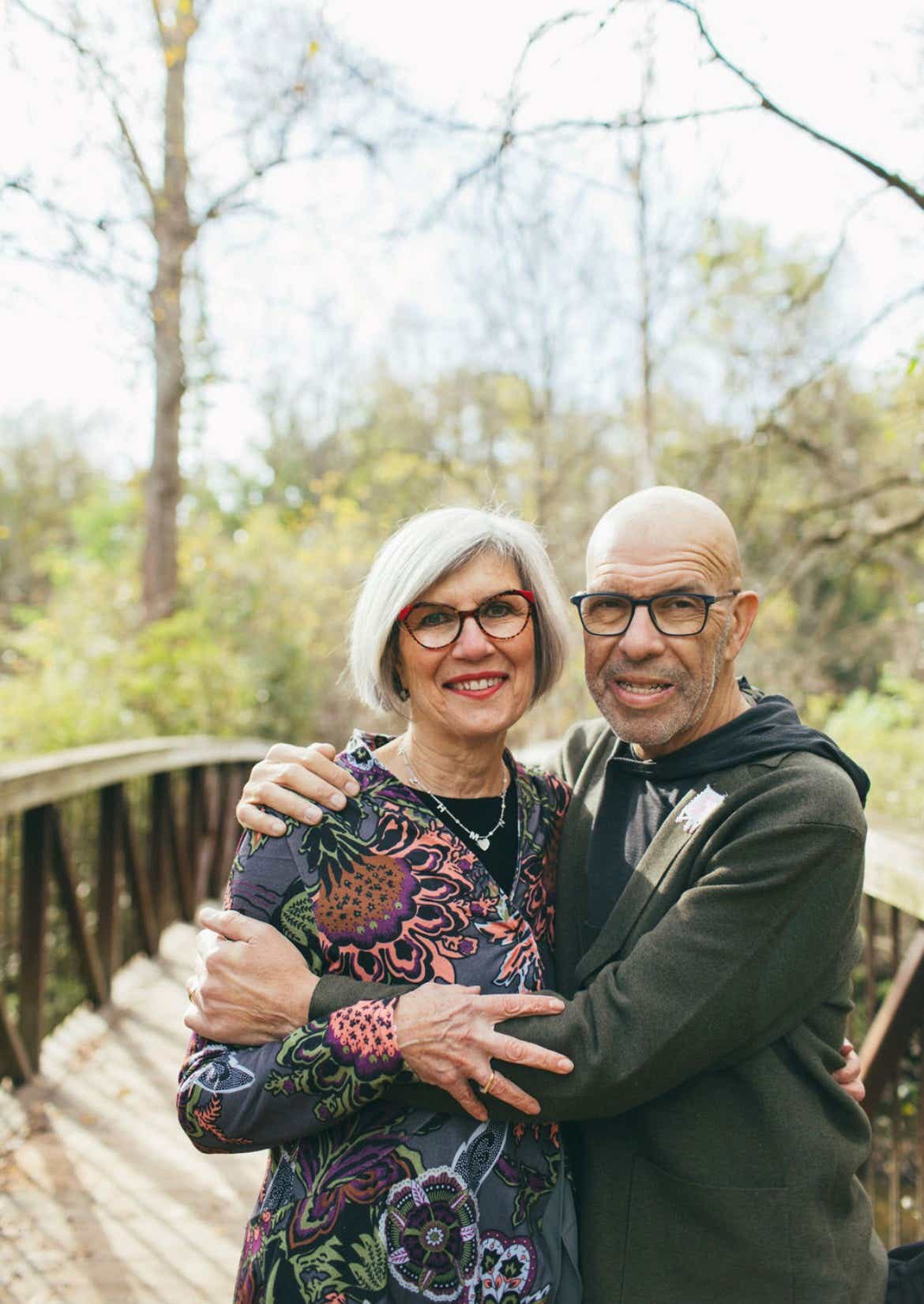
It’s been about 13 months since Abramowitz was told he had a year to live, and he says he feels great. Part of what motivates him is setting short-term goals for the future. “We rented a cottage up north for July,” he says. “My oncologist signed off on us taking a 10-day trip to Israel in June. I just got a new car. Can you believe that? The guy who’s supposedly dying is getting a new car.”
In between treatment and travel, life for the family has gone somewhat back to normal. Abramowitz is finally eating and sleeping normally. He’s spending time with friends. He completed his family’s tax returns in April. Janice has started painting again. And as always, Abramowitz remains optimistic. “I’ve got no intention of checking out anytime soon,” he says. “I’m here for the long run. I hope to follow up on this conversation this time next year.”
Ian was able to read this story before he passed, and his legacy will live on in the work he did to inform others about the importance of biomarker testing for advanced cancer patients.







